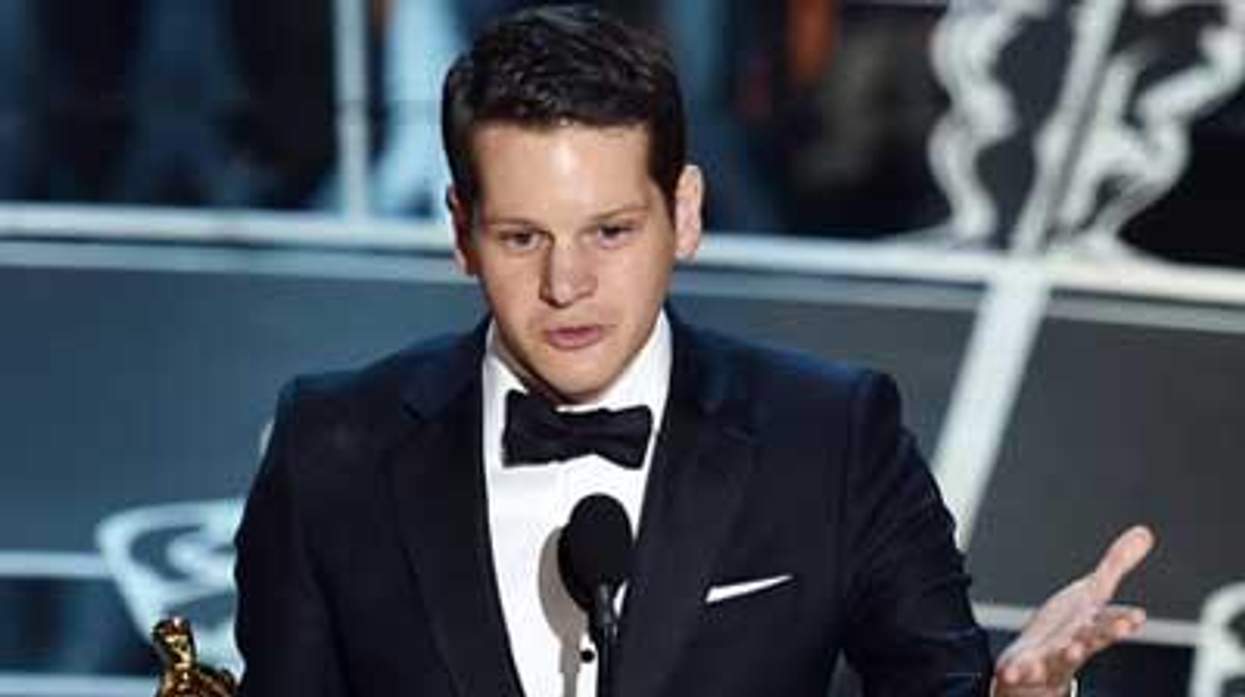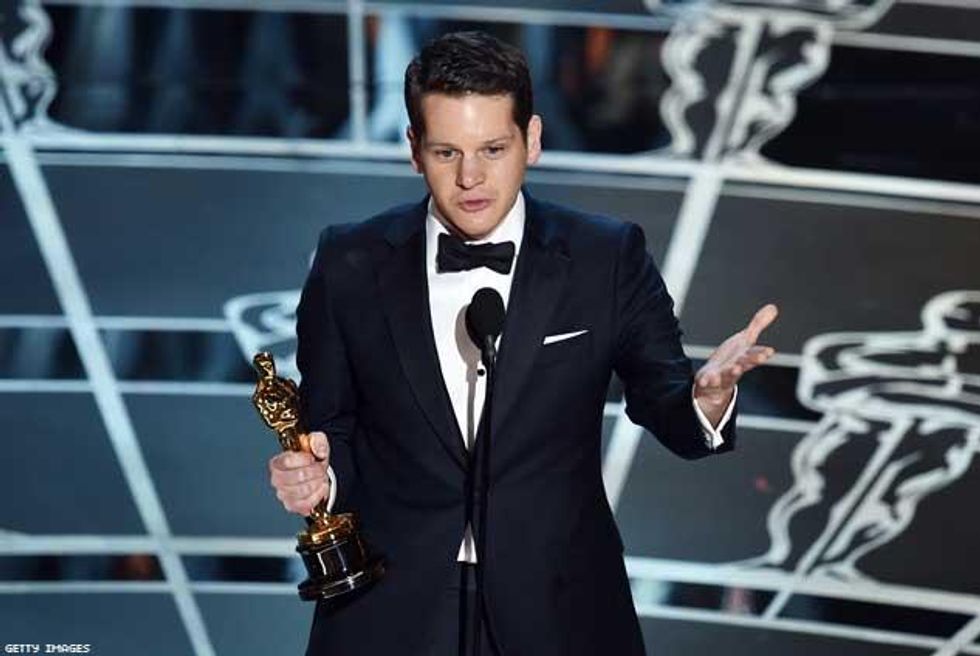In one of the most moving speeches during Sunday night's 87th Academy Awards, screenwriter Graham Moore urged anyone like him who feels different or Alan Turing, the main character of his film The Imitation Game, to embrace their uniqueness instead of harming themselves.
"When I was 16 years old, I tried to kill myself because I felt weird and I felt different and I felt like I did not belong," Moore said. "And now I'm standing here, and so I would like this moment to be for that kid out there who feels like she's weird or she's different or she doesn't fit in anywhere. Yes, you do. I promise you do. Stay weird. Stay different, and then when it's your turn and you are standing on this stage, please pass this same message to the next person who comes along."
Moore's film was about gay mathematician Turing, who helped decipher the Enigma code used by the Nazis during World War II, helping the allied countries win the war. Turing was prosecuted for homosexuality by the British government when it was revealed that he was gay, and he committed suicide in 1954 at age 41.
Following a stirring performance of the award-winning song, Common said the bridge Martin Luther King Jr., led protestors across, as depicted in the film Selma, was a symbol of discrimination based on "race, gender, religion, sexual orientation and social status."
Also on the music front, bi singer Lady Gaga performed a number celebrating the 50th anniversary of The Sound of Music, and out artists Tegan and Sara performed their Oscar-nominated song "Everything Is Awesome" from The Lego Movie.
The first out gay man to ever host an Oscar performance, Neil Patrick Harris, was getting high marks for a night of surprises, including Harris walking in his underwear onstage in an elaborate joke about Birdman, the night's Best Picture winner.
--Michelle Garcia and Jase Peeples
Correction: The Advocate described Moore as "out" in a previous version of the article, but he told BuzzFeed News, "I'm not gay, but I've never talked publicly about depression before or any of that and that was so much of what the movie was about and it was one of the things that drew me to Alan Turing so much."
















Charlie Kirk DID say stoning gay people was the 'perfect law' — and these other heinous quotes
These are some of his worst comments about LGBTQ+ people made by Charlie Kirk.